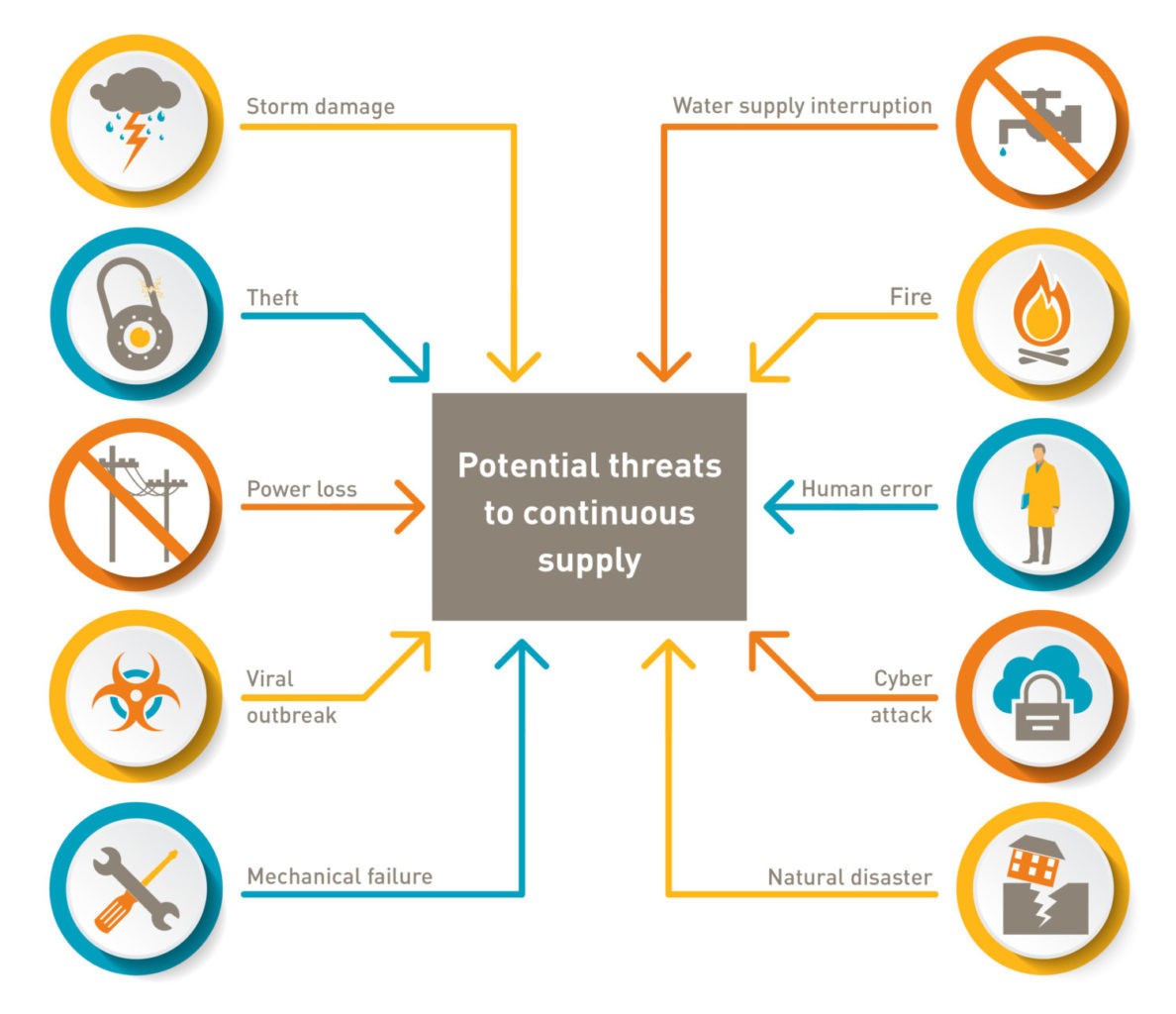May 4, 2021 by Siobhan Climer and Eric White
This article was originally published May 2020.
The business continuity plan has always been essential. Last year, many businesses found first hand the impact strategic disaster recovery programming and business continuity planning can have during a crisis.

One question that has recently come to light is what level of transparency a business continuity plan should offer. As companies begin to develop hybrid work solutions and IT evolve, businesses should begin to adapt their plans. This brings up several other questions:
- Who is responsible for creating and implementing a business continuity plan?
- Whose role is it to communicate the business continuity plan?
- Is it something you communicate to all internal employees?
- Is there a risk to sharing your business continuity plan details?
- Do you publish your business continuity plan publicly – on your website, for example?
Let’s break down these questions one by one to better understand the importance of communication in successful business continuity planning.

Who is responsible for creating and implementing a business continuity plan?
In mid-market and enterprise organizations, a Business Continuity Coordinator (BCC) is responsible for creating, testing, and implementing a business continuity plan. They must:
- Understand how to work across potentially dozens of departments and stakeholders to identify mission-critical operations.
- Document, test, and refine business continuity plan processes to ensure the BCP is regularly updated and functional.
- Communicate the business continuity plan details internally and ensure smooth implementation if (and when) the plan becomes operational.
However, not every organization has a BCC. In many companies, the responsibilities of the BCC are split between leadership and technology teams. Leadership communicates the plan and the IT teams facilitate the implementation of the business continuity plan.
Whose role is it to communicate the business continuity plan?
In an ideal situation? The BCC and CEO/COO would coordinate communication of the business continuity plan during its many phases, up to and including implementation.
Reality is far more complicated. The responsibility of communication falls to many different departments.
IT teams often carry the brunt of communicating actionable intelligence, from how to modify functional processes in new circumstances to ensuring data security, accessibility, and portability.

Should you communicate the business continuity plan to all internal employees?
Yes, at least elements of it. Communication is the beginning and ending of strategic business continuity planning. A BCP needs to address all employees, and – therefore – all employees should be aware of its existence. Certainly, the level of granular detail and responsibility varies; regardless, all employees need to have a basic understanding of their roles and responsibilities during a disaster event.

Is there a risk to sharing your business continuity plan details?
Yes. Sharing business intelligence has inherent risks and you should not share the full business continuity plan with just anyone – even trusted department leaders. In many cases, the BCC will maintain a master business continuity plan document – that houses possible scenarios, individual and departmental responsibilities, and crucial information – such as vendor contact details, mission-critical data access credentials, and disaster-scenario plans.
For a competitor or malicious entity, that information could be incredibly valuable. This data should be carefully monitored and protected. Make sure all employees have the information they need to successfully implement your BCP. And make sure you’ve made sure with business continuity plan testing.
Do you publish your business continuity plan publicly – on your website, for example?
A strong business continuity plan can send a strong message to your customers and clients. People want to work with an organization that is transparent and prepared, and a business continuity plan demonstrates just this.
Instead of simply publishing your BCP in full on your website, or even sharing it with potential clients or vendors, we recommend the following:
 Provide an excerpt of your business continuity plan. Share the Table of Contents, create a client-facing highlights reel, or share an introduction or abstract. This allows you to protect critical information and showcase your strategic, action-oriented mindset.
Provide an excerpt of your business continuity plan. Share the Table of Contents, create a client-facing highlights reel, or share an introduction or abstract. This allows you to protect critical information and showcase your strategic, action-oriented mindset.
Offer business continuity plan FAQs. This is a far more user-friendly way to approach communication and business continuity planning. Identify and answer a list of questions for what you and your clients should do during specific situations.
Put communication and compassion front and center. Instead of putting together a piece of collateral that may or may not be effective, make sure your clients know what to do if they need to reach you. Give clients reliable contact information. Give them peace of mind.
Communicating Your Business Continuity Plan Matters
Your business is unique, and the details of your business continuity plan – and the specifics around communication and implementation – are equally individual. Yet communication is vital to every strategic business continuity plan, whether it is for a boutique pet groomer or multi-national SaaS-provider.
Ensure your employees and clients know what to do during a crisis event with comprehensive disaster recovery programming and business continuity planning. Our team are experts in matching business continuity planning to technology, ensuring that during disasters your infrastructure and systems continue to deliver what is needed.
You can find out more about protecting your data at our virtual webinar on May 18th.
Contact us today to discuss communicating your business continuity plan.
About Mindsight
Mindsight is industry recognized for delivering secure IT solutions and thought leadership that address your infrastructure and communications needs. Our engineers are expert level only – and they’re known as the most respected and valued engineering team based in Chicago, serving emerging to enterprise organizations around the globe. That’s why clients trust Mindsight as an extension of their IT team.
Visit us at http://www.gomindsight.com.
About The Authors
Eric White is Chief Technology Officer and VP of Consulting Services at Mindsight. With over ten years of experience in information technology and leadership, Eric excels at implementing network and data center technologies, designing high-yield solutions for the business. Holding professional certifications from Microsoft, VMware, and EMC, as well as the Cisco CCNP, Eric is an expert at solving business realities with a client-centric focus that delivers.
Siobhan Climer writes about technology trends in education, healthcare, and business. With over a decade of experience communicating complex concepts around everything from cybersecurity to neuroscience, Siobhan is an expert at breaking down technical and scientific principles so that everyone takes away valuable insights. When she’s not writing tech, she’s reading and writing fantasy, hiking, and exploring the world with her twin daughters.


